It’s been said time and time again, but we’ll sing it loudly one more time for the people with the seats in the back: palpable change starts with forming small, everyday habits and sticking to them, which is why today’s All Eyes On is dedicated to making the transition to a low waste lifestyle. Contrary to popular (albeit highly uneducated) belief, climate change and the war humanity is waging on the environment is anything but fake news, no matter how the media attempts to spin it. Through the waste we are producing by the minute, we are creating catastrophic, irreversible damage to our planet. It sounds grave because it is grave. But, that shouldn’t overwhelm and discourage you from starting where you can. It’s all about those small, yet proactive steps, and they really do make a difference. We’re still learning ourselves, alongside many other individuals and brands who have pledged to become more sustainable (we’re looking at you: Trader Joe’s and Estee Lauder). The good news is that the option to choose a more sustainable alternative is closer than ever, with eco-friendly retailers popping up all the time worldwide. In fact, one just did in our very own Nashville, Tennessee this past Wednesday. Welcome to the neighborhood, The Good Fill.
So, we thought we’d start by sharing what we know in hopes of encouraging you to implement change into your own everyday life. If you’re not sure how or where to begin, try evaluating what you are doing currently. Then, set goals for yourself — big and small — ticking off boxes one by one until you’re on your way toward major strides in reducing your carbon footprint. Conserve as much as you can, put in the effort, and choose more sustainable choices inch by inch, and don’t forget to give yourself a high five for all of the progress you’re about to make. For some, it’ll be incredibly easy to make seamless changes (if not entirely adopt) a low waste lifestyle. For others, it’ll be the baby steps that make the greatest change. Either way, you can feel good about keeping plastic out of our oceans and excess waste from our landfills. And, if there’s any tips / tricks of the trade that we missed, please do share the wealth of knowledge in our comments section, below.
The five principles of low waste:
When evaluating your day to day habits, try to keep the 5 Rs in mind: Refuse. Reduce. Reuse. Repair. Recycle. We live in a time of great convenience with everything from our groceries to our toilet bowl cleaner being just a finger’s tap away. As a society we have adopted this luxury of ease, which admittedly can be hard to break, but it’s time to make efforts when and where we can to break some of these habits by applying the 5 Rs to pretty much any and every situation in front of us.
Tips for a low waste transition:
Clothing / Homewares:
-
- Buy vintage and secondhand clothing.
- Invest in slow fashion. Supporting slow might feel like a more expensive alternative in the beginning, but it’s better for the earth, creates less waste, and the clothes will last you a lifetime. A few great brands that practice slow fashion include: Ilana Kohn, Patagonia, Older Brother, Veja, Edun, and Christy Dawn.
- Pass down, donate, or resell clothing on popular resale sites and apps like Etsy and Depop.
- Repair clothing and take care of it well, so that it lasts longer.
- Buy secondhand furniture and homewares.
- Buy quality, buy less, and use it for longer.
Cleaning:
- Stop buying paper towels. Use rags and cloths instead. To use what you already have, try cutting up old towels for rags, and t-shirts as cloths for glass and mirrors. Don’t rule out old sweatpants and sweatshirts, either. Cut those up and use them for dusting.
- Clean with vinegar, baking soda, lemon, and essential oils and store in glass bottles.
- Hang to dry or ditch the dryer sheets and use dryer balls when laundering clothes.
Shopping:
- Bring your own reusable bags! Keep them in your purse, your backpack, and / or in your car.
- Avoid using or buying plastic in the stores.
- Look for alternatives.
- Shop the bulk aisle! Bring your own jars or muslin bags (many have the weight listed on them, for easy deduction during checkout).
Shop Reusable Bags
Food:
- Use glass containers and for storage. There are many great options in all sizes on the market. There are also many products that serve as alternatives to plastic bags, like Stasher and Shark Lock.
- For produce, try muslin or net produce bags. Or, better yet, no bag at all. And, for bread, opt for a reusable beeswax alternative.
- When packing your lunch and / or snacks for work or school, try to avoid waste and plastic. There are so many alternatives on the market, that make packing a lunch easy and environmentally friendly. We love the Porter bowl, as well as Bento boxes (some even come with utensils).
- If you don’t want to buy something, why not start with the jars you already have in your fridge and on your pantry shelves (think: pasta sauces, pickles, jam, etc.) to store food, prepped meals, or leftovers.
- Reduce food waste by buying less of it.
- Meal prep more, and eat what you have!
- Pay attention to expiration dates.
- Try composting! You can compost a variety of scraps — fruits, vegetables, coffee grounds, tea leaves — and it’s easy to do so on the comfort of your countertop.
- Grow your own food when possible. Create a kitchen window herb garden or plant vegetables and fruit in your backyard or with planter pots and boxes on your patio or deck.
Shop Reusable Food Storage
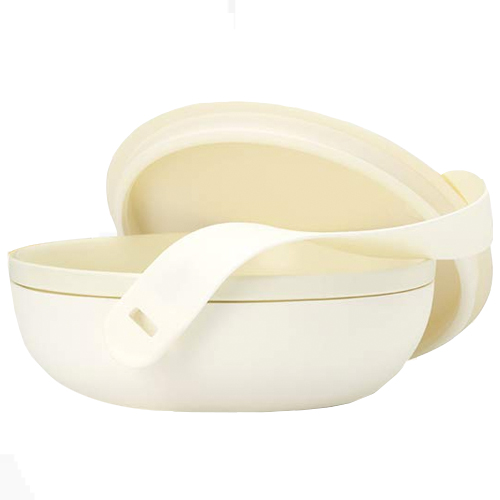
Porter Bowl Lunch Container
$40, W&P
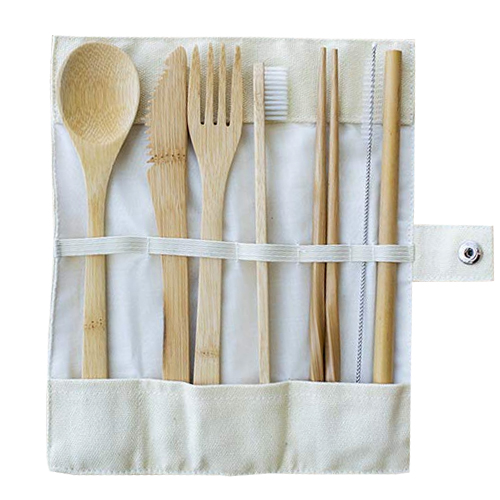
Bamboo Travel Utensils Set
$12, Amazon
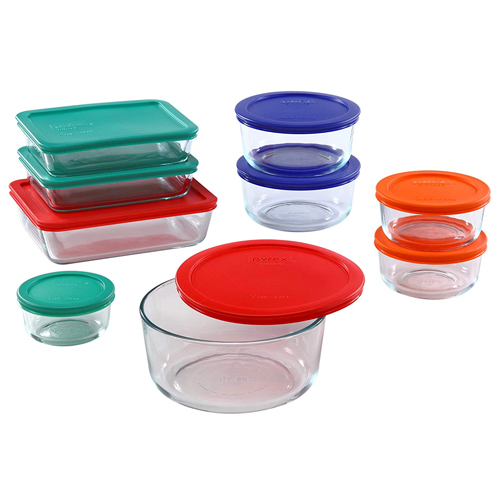
Simply Store Glass Container Set
$24, Pyrex
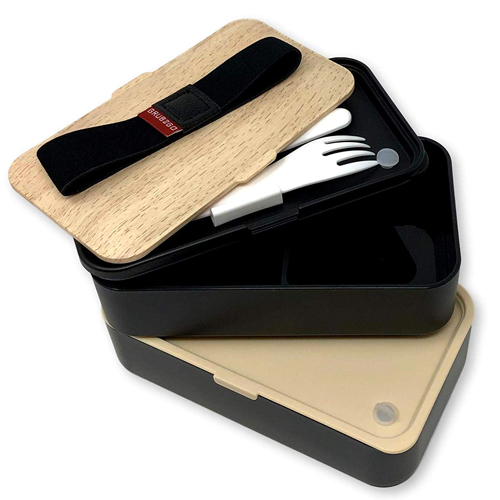
Japanese Bento Box
$25, Amazon
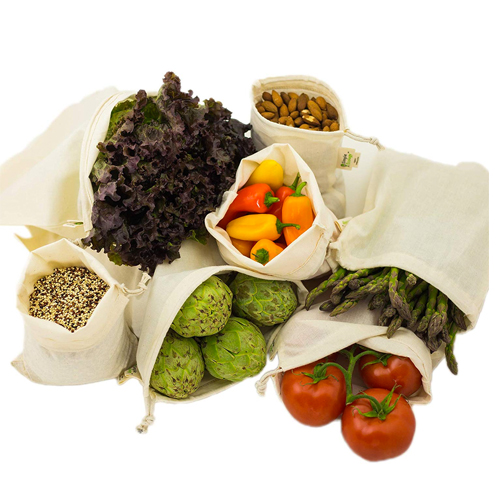
Reusable Muslin Produce Bags
$16, Simple Ecology
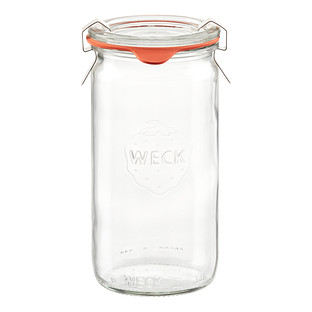
Weck Jars
$33, Weck
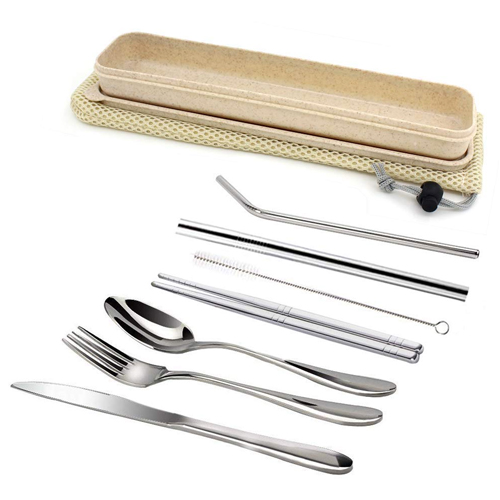
Reusable Flatware Set
$11, Amazon
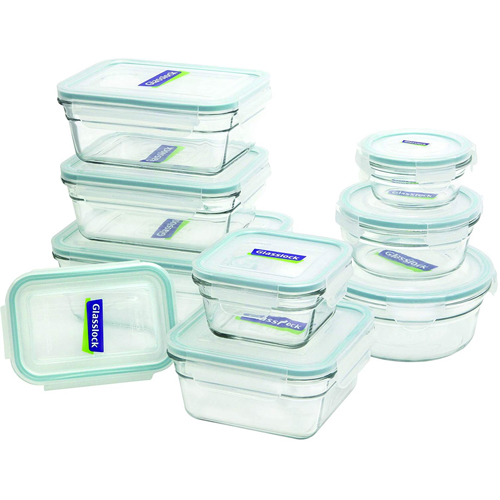
18-Piece Container Set
$39, Glasslock
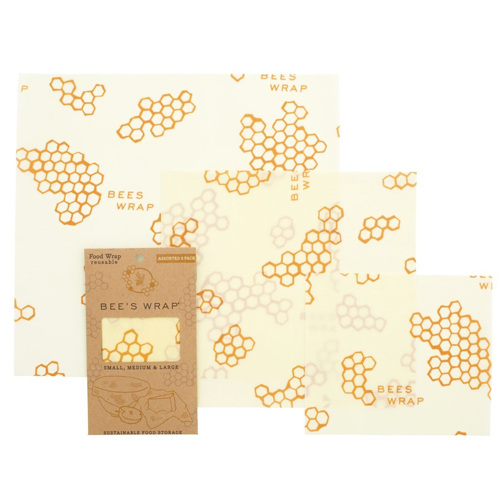
Reusable Beeswax Food Wrap
$18, Bee's Wrap
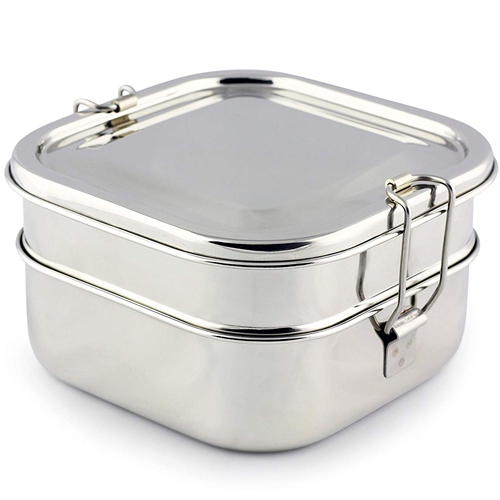
Stainless Steel Bento Box
$22, Amazon
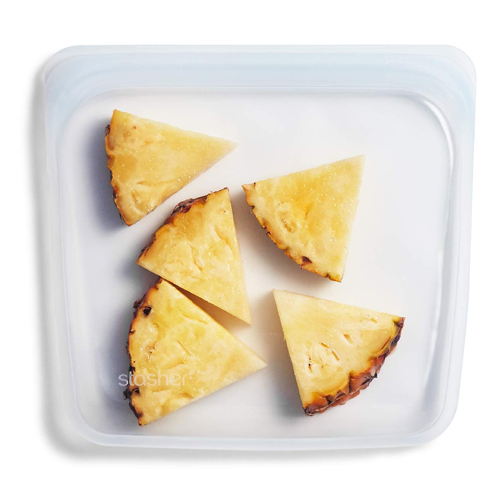
Reusable Silicone Food Bag
$12, Stasher
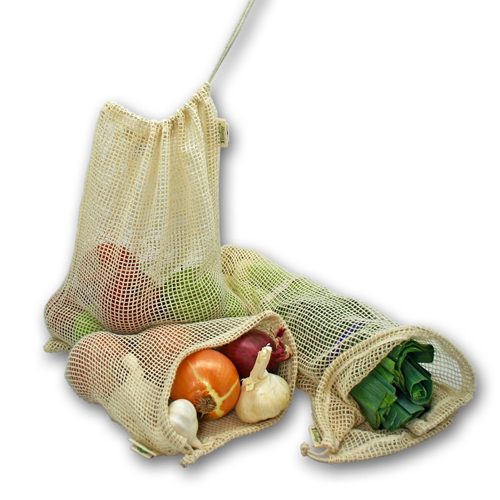
Reusable Mesh Produce Bags
$16, Simple Ecology
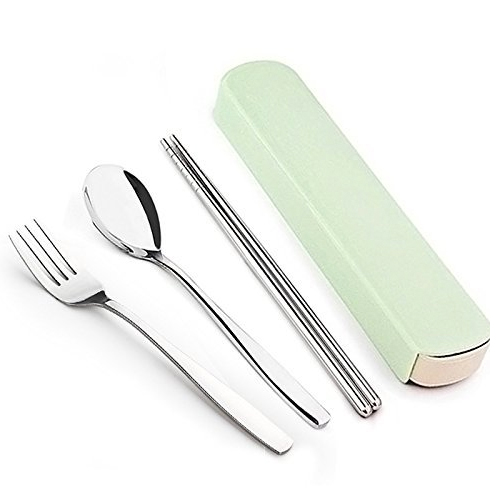
3-Piece Travel Cutlery
$8, Amazon
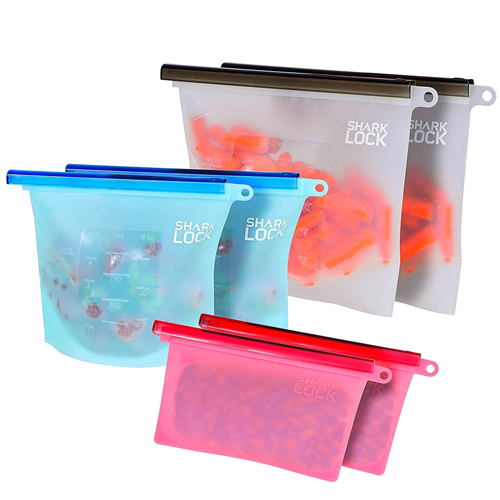
Silicone Food Storage Bag (Set of 6)
$27, Shark Lock
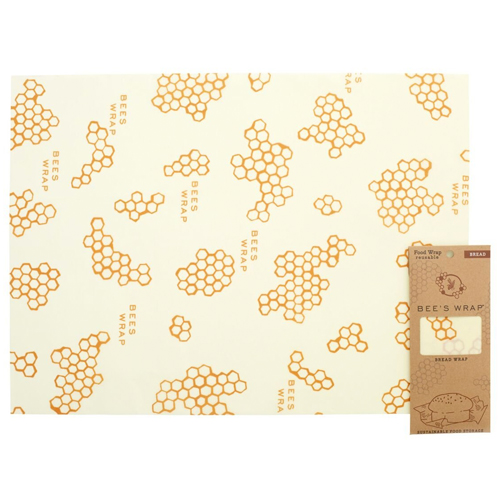
Reusable Bread Wrap
$15, Bee's Wrap
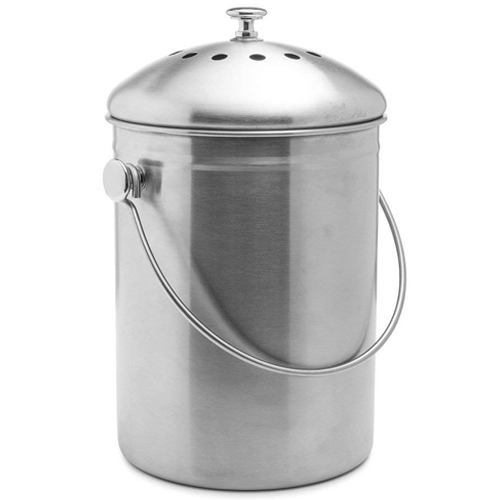
Stainless Steel Compost Bin
$23, Epica
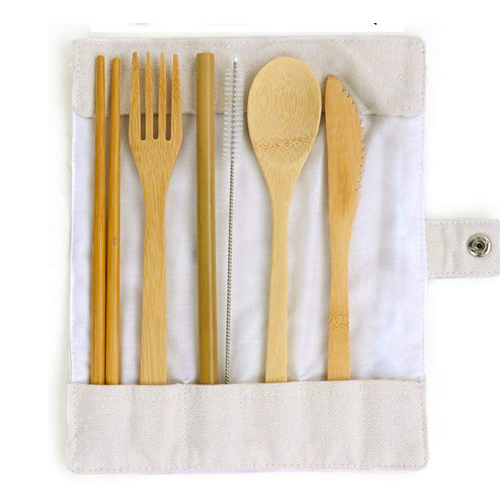
Reusable Utensils
$9, Choppie
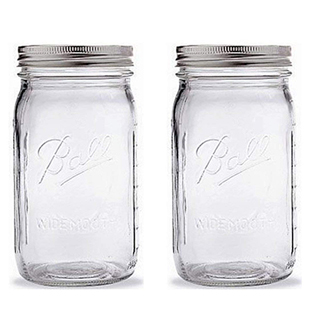
Ball Jars
$15, Ball
Swap for biodegradable & reusable:
Make an effort to stop buying regular household items that are made of plastic and fill up our landfills. Look for biodegradable and reusable alternatives — they’re everywhere!
Shop Reusable / Biodegradable
Drinkware:
Carry reusable cups and mugs. Opt for glass or metal straws. Cancel your water delivery service and use a refillable water filter instead.
Shop Reusable Drinkware
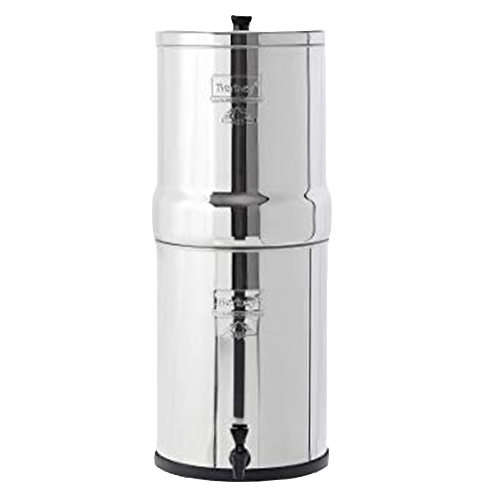
Travel Berkey Water Filter
$337, Berkey
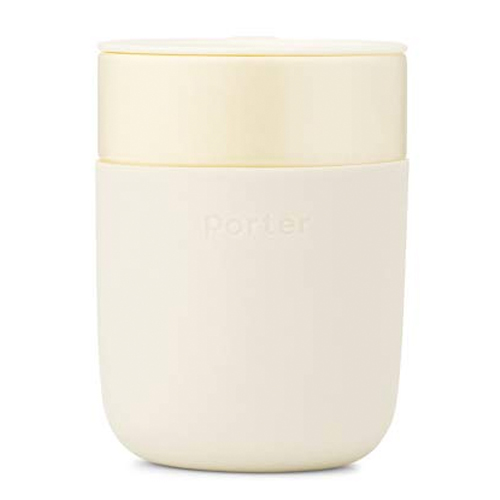
Porter Ceramic Mug
$25, W&P
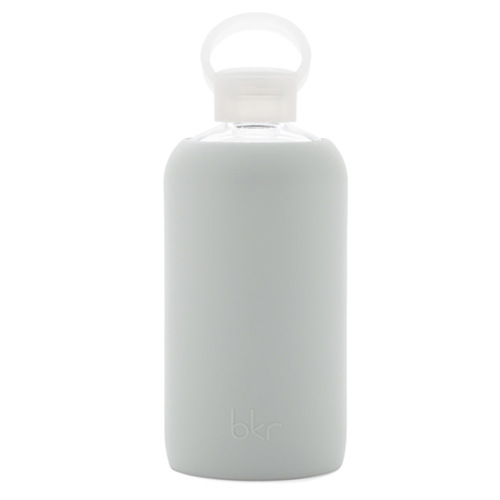
Glass Water Bottle
$48, BKR

Insulated Stainless Steel Bottle
$28, Klean Kanteen
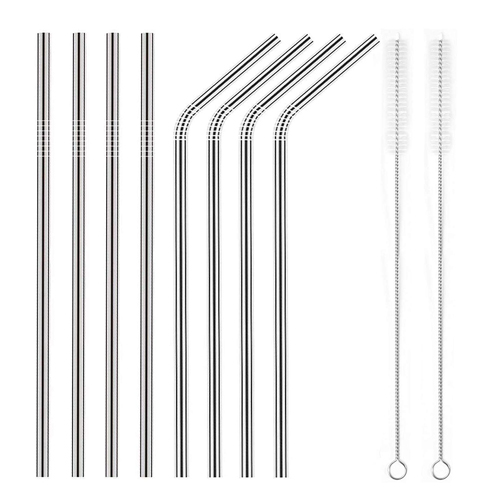
Stainless Steel Metal Straws
$8, Amazon
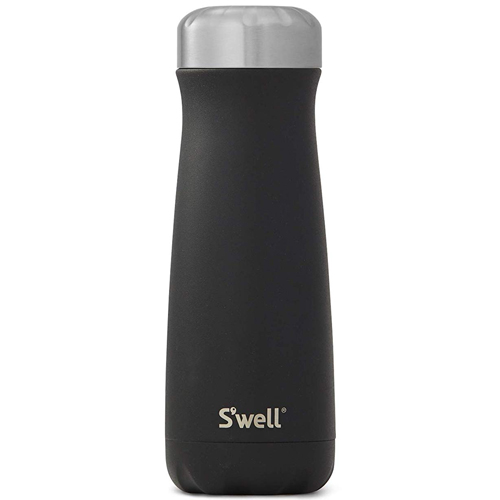
Stainless Steel Travel Mug
$33, S'well
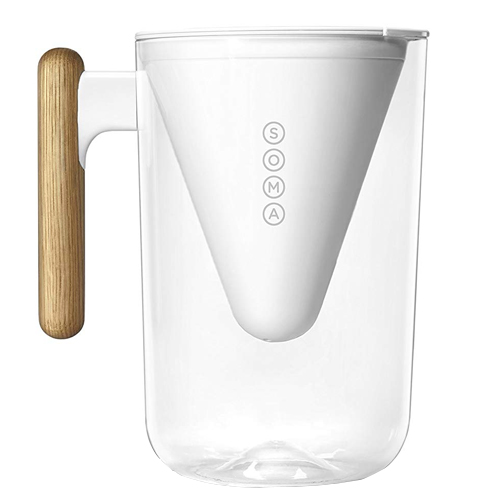
10-Cup Water Filter Pitcher
$40, Soma

Rambler Lowball
$20, Yeti

Stainless Steel Tumbler
$30, Yeti
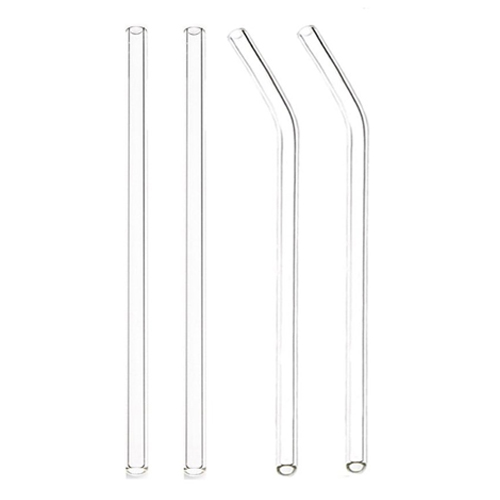
Glass Straws
$7, Amazon
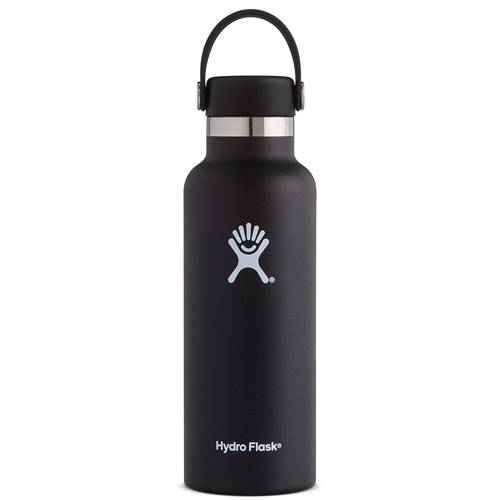
Stainless Steel Water Bottle
$35, Hydro Flask
Recycling:
Get informed on what recycling looks like in your area — it varies from city to city. Do your part by requesting recycling bins or dropping off recyclable items that aren’t able to be picked up.
Transportation:
Walk and bike more. Use public transportation when able. If you’re in the market for a new car, go electric — who wouldn’t want a Tesla?!
Educate:
Learn more, read more, and have this discussion with your friends, your family, and strangers — it’s contagious! Gift a low waste starter kit or book on the subject for a special occasion. Spread the word and really try to practice what you preach. These small changes make a big impact!






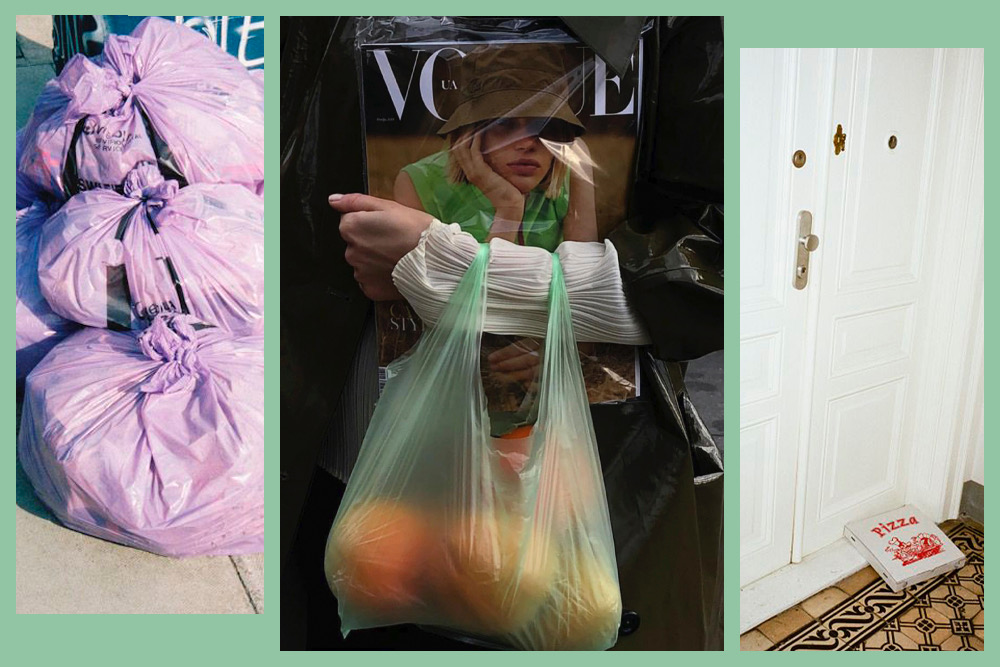
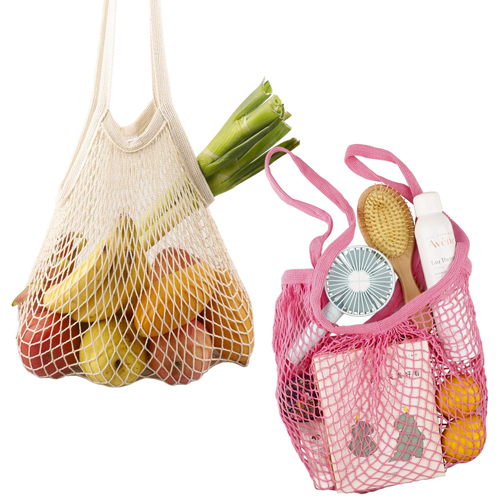
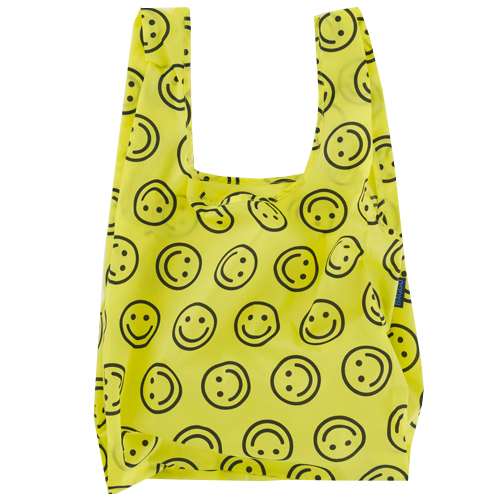
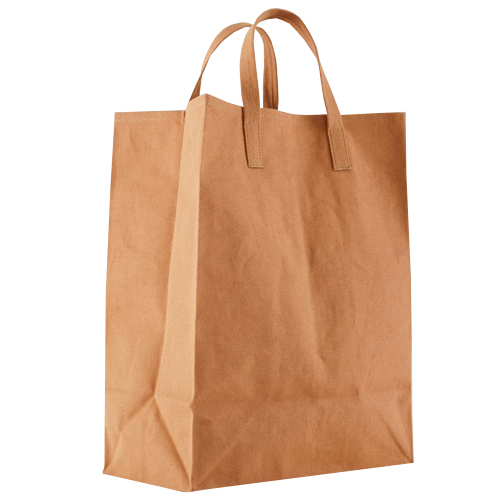

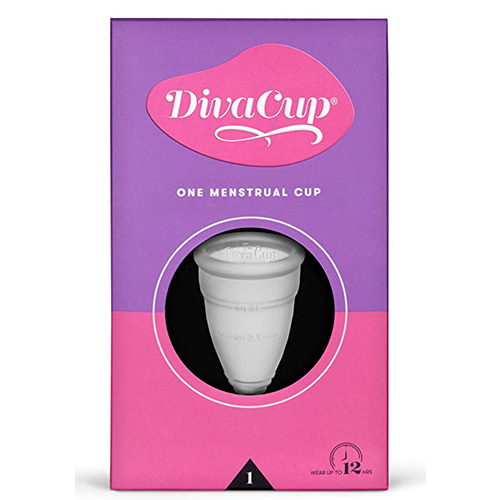
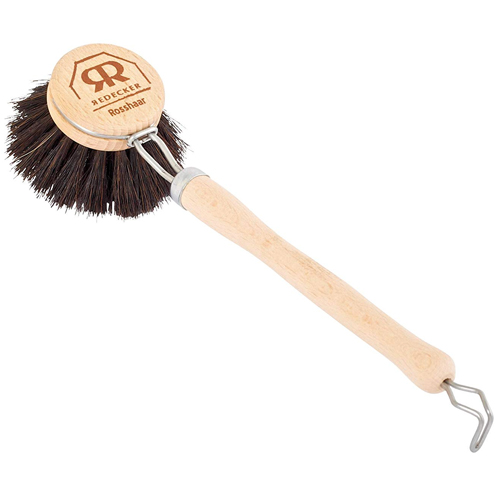
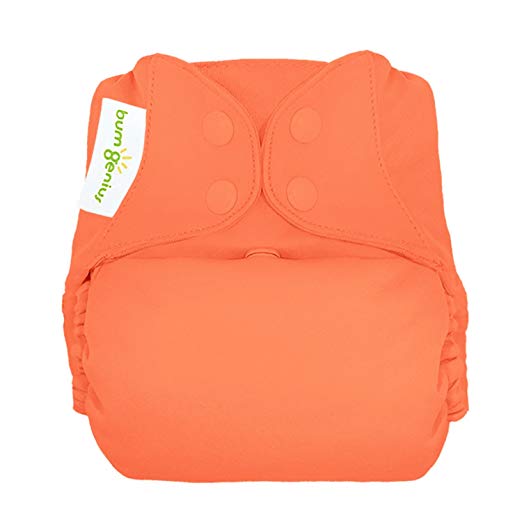
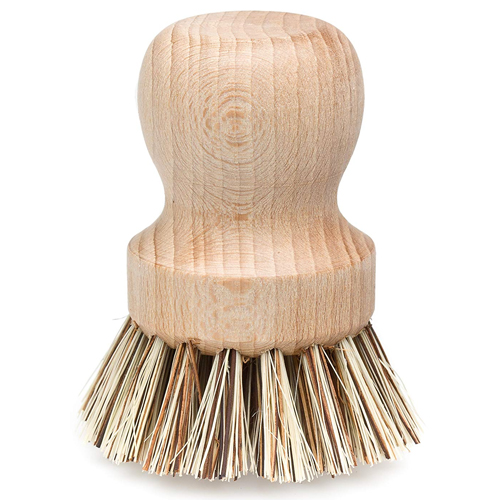
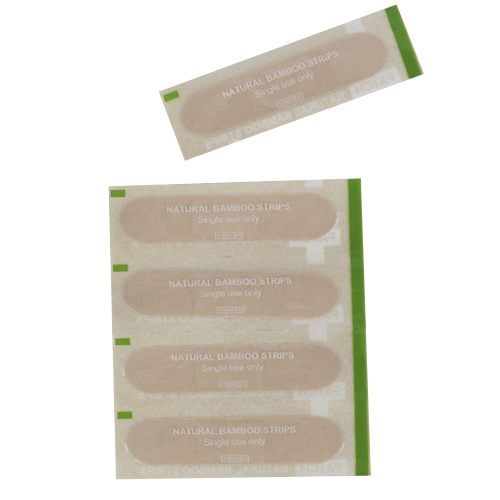
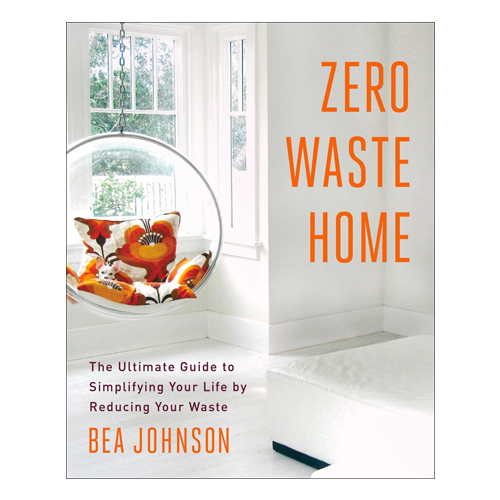

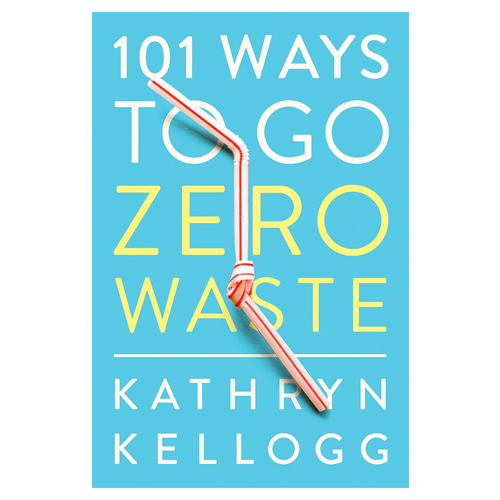
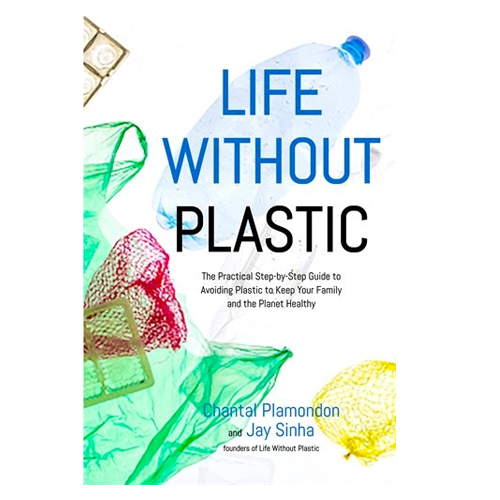







Gina
July 12, 2019 at 5:14 pmThank you for this article! These changes are ofter simpler than people realize, healthier than the standard alternatives, and make such a difference. Every article like this moves us all closer to a culture of sustainable habits being the norm instead of the exception. Let’s keep spreading knowledge and encouragement!
Neely
July 25, 2019 at 12:29 amLove this! Every year I give up three things to make a difference, whether it be for myself, or for the planet. This year, the biggest one was giving up online shopping AND shipping. Not only have I saved SO much money but I’m also able to support my local economy! Let’s be honest, does anyone really need same day shipping?